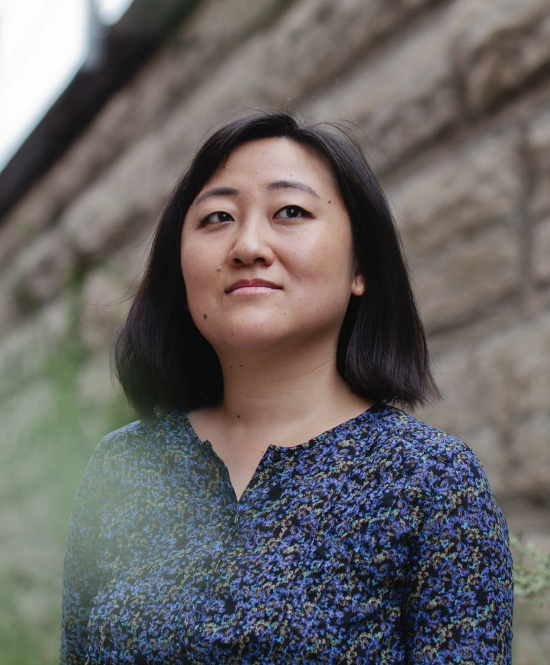UChicago Writer's Post-Apocalyptic Novel Earns Her Prestigious Honor

By Sara Patterson
Ling Ma doesn’t feel like an oracle, even as her award-winning debut novel about an epidemic finds new resonance amid the coronavirus outbreak. Published in 2018, Severance was inspired by emergencies of lesser scales: the 2002 SARS epidemic, Hurricane Sandy, and the 2011 snowpocalypse that shut down Chicago businesses and schools.
“I thought about how companies would react when these catastrophes happened,” said Ma, AB’05, an assistant professor of practice in the arts in the University of Chicago’s Program in Creative Writing. “I thought about my jobs, how people interact in the workplace and the power hierarchies. And how the media metabolizes larger-than-life events, trying to create a narrative for us in real time.”
A post-apocalyptic satire, Severance used the fictional “Shen Fever” to both skewer capitalism and reframe the immigration narrative of its Asian-American protagonist. Ma's work earned critical acclaim, and now has won her one of the country’s largest literary award for emerging writers.
On March 25, Ma was named one of the 10 winners of the 2020 Whiting Award, which includes a $50,000 prize for each individual. In honoring Ma for fiction, Whiting Foundation judges called Severance “a marvel of form” and “a hybrid supergenre,” in which she considers “the troubled American present, including end-stage capitalism and especially cultural nostalgia, brilliantly conceived as a fatal epidemic.”
For Ma, the reality of the COVID-19 outbreak is even wilder and weirder than her fiction. “I never predicted what’s happening now,” she said. “I’m working from home and watching the news like anyone else.”
The recent resurgence of attention for Severance also leaves her searching for words: “I am sure there’s a German word for when you have a hot book, but the indie bookstores, who championed the novel and were so instrumental to its success, are all closed down. It’s beyond words like 'bittersweet and irony.' ”
Critically praised and widely read, Severance also won the 2018 Kirkus Prize and the 2019 Young Lions Fiction Award, as well as spots on best-of lists in the New York Times and NPR. She now joins Whiting Award recipients such as playwrights Tony Kushner and August Wilson, novelist Alice McDermott, and Pulitzer-winning poet Tyehimba Jess, AB’91.
Established in 1985, the Whiting Awards are based on early-career achievement and the promise of superior literary work to come, and remain one of the most esteemed and largest monetary gifts for emerging writers.
“We wish to celebrate extraordinary writers, but we find ourselves in extraordinary times—ones where we are all reinventing how to gather, exchange ideas and deepen our connections with each other across a necessary distance,” said Courtney Hodell, the Whiting Foundation’s director of literary programs. “As long as literature has existed, it has served this purpose, and we look to writers for their uncanny ability to sift raw experience for its poetry and truth. What we are living now, Whiting writers will reflect back to us in time, with depth and clarity and heart.”